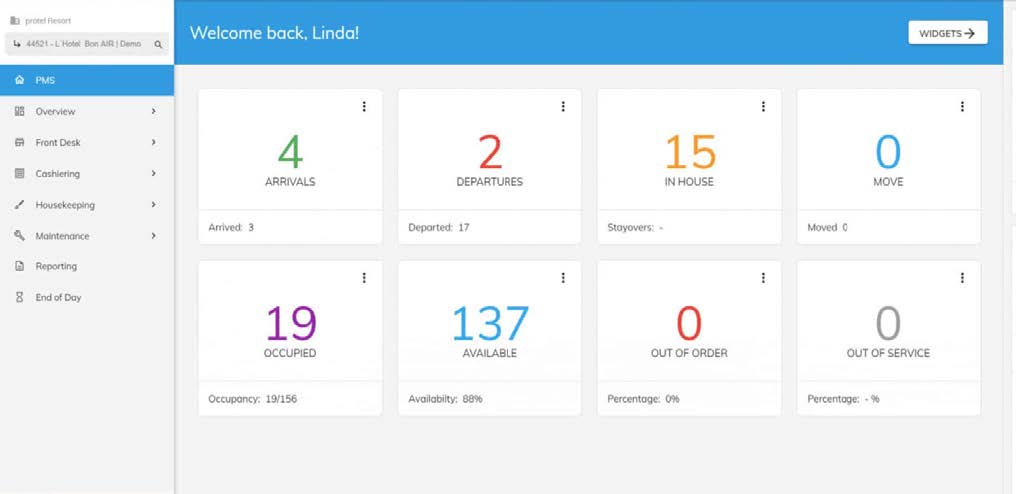If there is one thing to take away from VRM Intel’s 2020 Vacation Rental Data and Revenue Management conference, it is that there is a desire to understand and employ revenue management strategies and tactics across the vacation rental industry. Although it can seem difficult to assign responsibilities, find the right tools, and organize an entire strategy around the practice, becoming your own revenue manager does not have to be overwhelming.
Most property managers are already fully prepared to own their revenue management strategy—in-house—even if they don’t have the resources to hire a full-time revenue manager. Follow these steps and considerations to become your own best revenue manager.
The first step in developing a revenue management strategy is to make it someone’s responsibility—even if it is not your employee’s full-time job. Consider the employee who already works directly with owners and has experience in your markets as the right person to execute your vacation rental revenue management strategy. Most property managers already have the tools to build and maintain an advanced strategy in an efficient manner. Knowing how revenue management can fit into your property management business does not have to be overwhelming, and you likely already have the tools and know-how to get started.
You Know Your Owners
Although managing the guest experience from start to finish may seem like the only major task of vacation rental property managers, managing owners can sometimes be even more work. Owners can have a wide range of expectations regarding the management of their property, and each property owner has plenty of quirks and things that they look for when determining the success of their investment or home. Managing these expectations and keeping owners happy is a huge undertaking that is often passed to those who are responsible for revenue management and pricing strategies due to the fact that owners are frequently concerned about the financial performance of their unit. The ability to communicate current strategies, market insights, and unit performance is best done by someone within the property management organization because owner communication is so critical to the core of a property management business.
Starting with the owner acquisition process, it is important for the revenue manager or revenue management team to be involved from the beginning. Most owner onboarding processes typically cover property forecasting and performance expectations, something that is important for revenue managers to be aware of when implementing certain strategies. Some aspects of new owner onboarding, such as minimum rate and revenue requirements, directly affect revenue management and need to be communicated properly. The easiest way to ensure that revenue management stays involved throughout the owner onboarding process is to have someone on your team responsible for revenue management tasks. Although having a third-party revenue manager may seem more efficient and cost-effective, those inefficiencies can become invalidated with miscommunication and lag time between both parties.
You Know Your Listings/Market
Similar to being familiar with property owners, it is important for vacation rental revenue managers to know the ins and outs of each listing and specific market. Due to the nature of selling unique property listings, there are characteristics and details about properties that someone controlling the revenue management strategy needs to be aware of. Most of that type of knowledge, especially for larger portfolios, isn’t easy to communicate quickly to new or outsourced employees. This is an added benefit to managing revenue in-house because most of a property management team is already in the know regarding unique listings, historical context, owners, and more. There are also added benefits to having a revenue manager who is familiar with, and may even live in, the same market where properties are being managed. Local market knowledge is priceless when it comes to revenue management, and knowing a portfolio backward and forward can add a lot of value to overall revenue management strategies.
You Already Have the Tools
Although the idea of revenue management may seem overwhelming at first, most property managers are already implementing revenue management strategies without even knowing it. There are many vacation rental software tools that are used as a part of property management operations that also have fantastic revenue management applications. Everyone in vacation rental management is familiar with property management systems, and there are common tools and capabilities in many of those systems that can be used as a part of a revenue management strategy. Inventory and pricing controls within a property management system (PMS) can help define a revenue management strategy alongside other distribution features that may be unique to specific systems. Any use of a channel manager is also directly related to revenue management because the distribution of inventory can sometimes be more important than something like pricing.
 Dynamic pricing software has also become popular in the vacation rental industry over the past few years as managers look to gain competitive pricing advantages in their market. Dynamic pricing tools are the closest thing that the vacation rental industry currently has to a revenue management system, something that hotels and airlines use alongside a PMS to manage all the strategic levers available to revenue managers. These systems take a lot of the manual work out of pricing and reacting to market shifts in supply and demand, allowing property managers more time to focus elsewhere. Most property managers using a dynamic pricing tool are also able to use custom pricing settings and features to maintain a more advanced strategy in a more efficient manner.
Dynamic pricing software has also become popular in the vacation rental industry over the past few years as managers look to gain competitive pricing advantages in their market. Dynamic pricing tools are the closest thing that the vacation rental industry currently has to a revenue management system, something that hotels and airlines use alongside a PMS to manage all the strategic levers available to revenue managers. These systems take a lot of the manual work out of pricing and reacting to market shifts in supply and demand, allowing property managers more time to focus elsewhere. Most property managers using a dynamic pricing tool are also able to use custom pricing settings and features to maintain a more advanced strategy in a more efficient manner.
It’s Not That Hard
Revenue management can be difficult, but the benefits of having the owner, market, and tooling knowledge discussed above centralized in-house is what will make this challenge much more attainable. Data insights into market trends can prove or disprove owner expectations. Owner pricing demands can be effortlessly and quickly implemented in PMS and pricing tools. Data and comparison tools can reveal market and listing performance. The synergy of having this knowledge together makes a successful revenue manager for tens to hundreds of listings.
Focus on what matters most and where your time is most valuable. Our industry tends to think that unless a revenue manager has a wildly complex minimum stay schema or uses every customization available on all listings, then they are not doing their job, when in reality they should be focused on the bottom 20 percent of their listings that are going unbooked. Limiting yourself to a few basic metrics can simplify this whole process, so focus on the ones that are actionable! Consider forward-looking occupancy because it is wonderfully simple. The past is history. Comparing YTD revenue performance may be important to owners, but it doesn’t help you make more revenue; it just quantifies what has already happened. Quickly scan the 30- and 90-day occupancy of each listing on your program to make sure none are at the extremes, and if so, act. Comparing future rates to historical rates does not matter if the property goes unbooked.
Besides simplifying the metrics, look at simplifying your workload by offloading it to the software you have in front of you. Not having time for revenue management because of repetitive tasks should not be an excuse for not driving your revenue management strategy. If you sit down to do rates for next year, then stop, and start using rolling calendars.
If you manually reduce minimum stays as time gets closer, utilize automatic gap filling. Searching and replacing rates on orphan days is not a good use of your time — automate it. And if you are constantly changing your last-minute discounts by hand, you are not prioritizing your time. Software and pricing tools can do the repetitive stuff for you and can also be set up in bulk so there is even no upfront time cost.
Although tools will save you time, as a busy PM you will never have enough, and that is okay.
First, be proactive, reviewing September performance in October will tell you what mistakes you made (or hopefully didn’t make), but it won’t stop them from happening. Second, small, smart, and targeted pricing changes are effective when done regularly. Once a week, log into your data provider, see what listings are underperforming, and use the tools to take quick action to lower their rates 5 percent and then review next week. Later in the week, log back in again, review forward portfolio occupancy, and tweak up or down the dates that are passing too fast or too slow. If done regularly, that’s all you have to do to have a stellar year.
Conclusion
Although everything that encompasses revenue management may seem daunting to tackle, there is a high likelihood that you or a capable member of your team is already doing part of revenue management even if they don’t have the title. Assign clear roles and be deliberate about leveraging that person’s knowledge of owners and markets.
No one outside your company will know your owners and how to manage and serve them better than you. Next, take the time to review your software toolkit to see how much time and effort you can save, as well as prioritizing revenue-generating revenue management tasks, not just reporting for reporting sakes. Revenue management in the vacation rental industry has come a long way to make you your best revenue manager.


